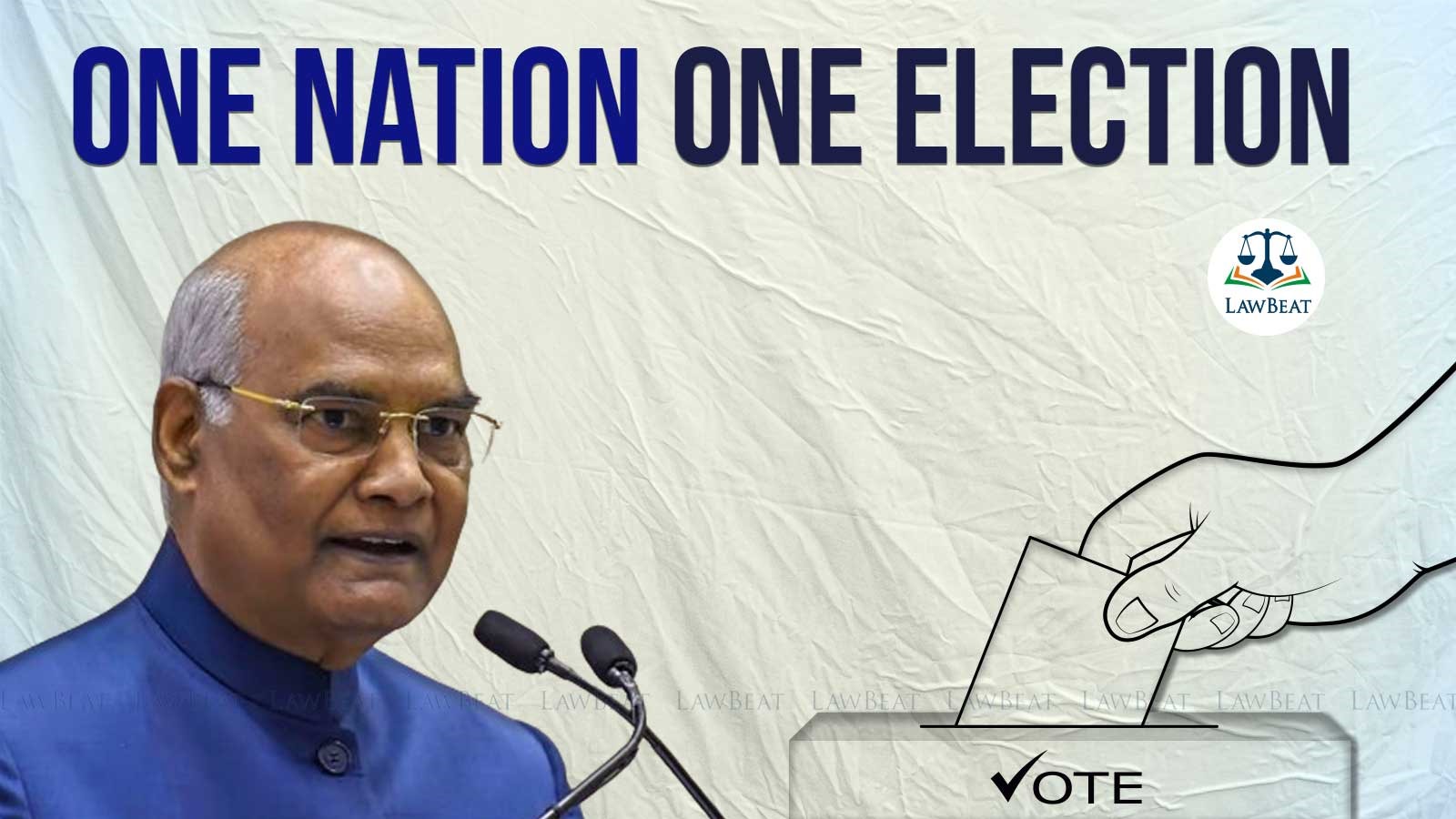Former President Kovind's Panel Submits Report on One Nation, One Election: Recommends Simultaneous Elections for a More Inclusive Bharat

Prepared after diligent research of 191 days, the report states “Overwhelming support for holding simultaneous elections will spur development process and social cohesion, deepen the foundations of our democratic rubric, and realize the aspirations of India, that is Bharat”
The High-Level Committee (HLC) appointed by the Central Government, led by former President Ram Nath Kovind, has submitted its report on "one nation, one election” to President Droupadi Murmu at Rashtrapati Bhavan.
The committee, constituted on September 2, 2023, tasked with evaluating the feasibility of synchronizing elections nationwide. Alongside Ram Nath Kovind, it includes Union Home Minister Amit Shah, Union Law Minister Arjun Ram Meghwal, and other prominent leaders, reflecting a diverse political spectrum.
The key takeaways from the report include:
- Proposed Electoral Synchronization: At the heart of the report is a two-step approach for the synchronization of elections. In the first phase, the committee suggests aligning the electoral cycles of the Lok Sabha and State Legislative Assemblies. This would be followed by the second phase to synchronize elections for Municipalities and Panchayats, thereby streamlining the entire electoral process into a unified framework.
- Proposed Article 82A: This proposed article aims to synchronize the terms of the Lok Sabha and State Assemblies. Once this article is in effect, all state assemblies constituted after this appointed date will have their terms end with the Lok Sabha’s term. This means if a state election is held after the appointed date but before the next Lok Sabha term ends, that state assembly’s term will only last until the end of the current Lok Sabha term.
- Introduction of Article 324A: Article 324A proposes to synchronize elections for local bodies with the general elections, notwithstanding the existing terms outlined in Articles 243E and 243U. This amendment aims for simultaneous elections for municipalities and panchayats along with the general elections.
- Amendment to Article 325: The amendment of Article 325 is suggested to establish a Single Electoral Roll and Single Elector’s Photo Identity Card, streamlining voter identification and minimising redundancies.
- Presidential Notification: The Committee suggests that the President of India, following the first sitting of the Lok Sabha after a general election, should issue a notification to bring Article 82A into force. This date becomes the "Appointed Date." Post this, the tenure of all state legislative assemblies elected after this appointed date will align with the term of the Lok Sabha, ensuring simultaneous elections.
- Handling Political Instabilities: The HLC acknowledges the realities of political turbulence, such as no-confidence motions or hung parliaments. In such events, the committee suggests that, fresh elections would be held, but the new government would only serve for the remainder of the original five-year term, not a full new term.
- Implementation Group: To manage the transition and address logistical challenges, the committee recommends establishing an Implementation Group. This body would coordinate closely with the Election Commission of India and State Election Commissions. Key responsibilities include ensuring infrastructure readiness, procuring necessary electoral equipment like Electronic Voting Machines (EVMs) and Voter Verified Paper Audit Trails (VVPATs), and organising the deployment of polling personnel and security forces.
- Role of the Election Commission: In case the Election Commission finds that elections to any Legislative Assembly cannot be held simultaneously with the general elections, it can recommend to the President that these elections be held at a later date.
- State Ratification: While local body elections fall under state jurisdiction, requiring ratification for changes, the report indicates that simultaneous elections to the Lok Sabha and State Assemblies do not require state ratification.
The report is the culmination of 191 days of diligent research, discussions, and consultations with a broad spectrum of stakeholders, including political parties, civil society, and electoral experts. The committee's recommendations focus on the need to alleviate the recurring administrative and economic strains associated with frequent elections, proposing a shift back to the practice of simultaneous elections that India followed during its initial decades post-independence.
Following comprehensive discussions, the Committee asserts that its proposals will markedly improve transparency, inclusivity, and the ease and confidence of voters. “Overwhelming support for holding simultaneous elections will spur development process and social cohesion, deepen the foundations of our democratic rubric, and realize the aspirations of India, that is Bharat,” the report states.
Source: PIB
